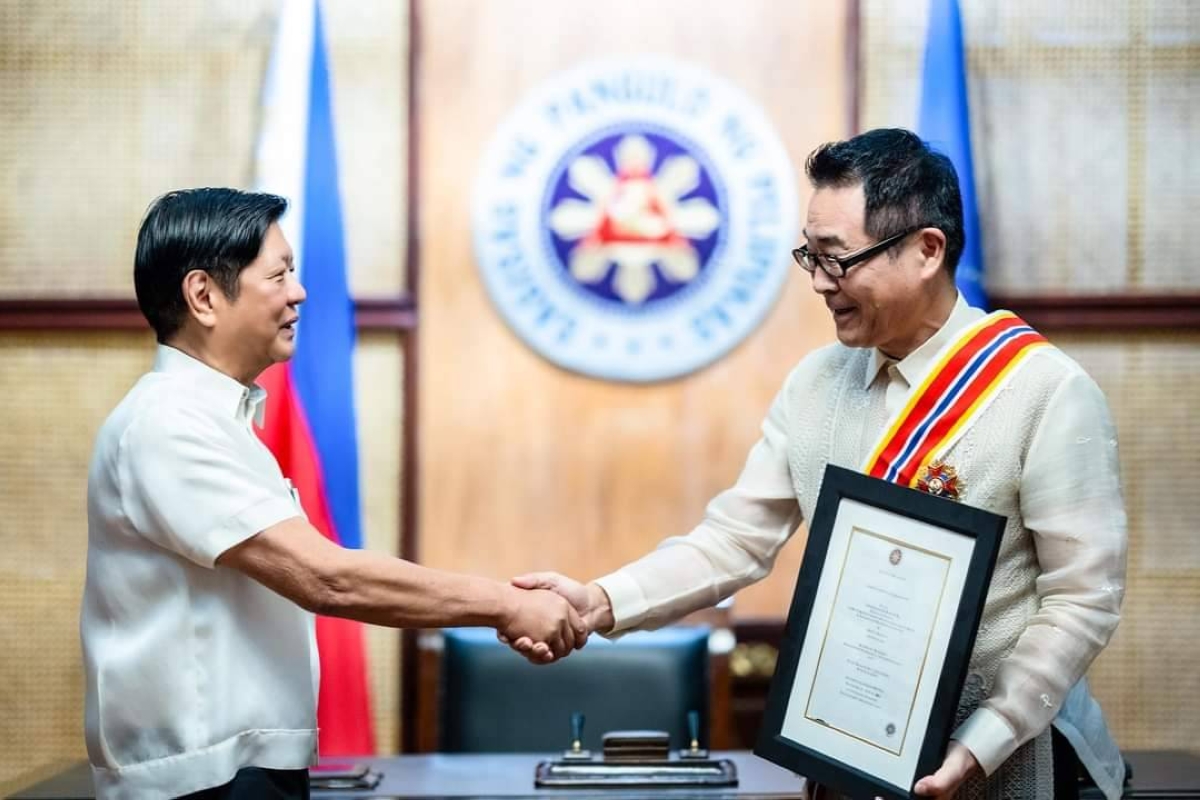President Ferdinand Marcos Jr. expressed satisfaction with the progress of the Philippines’ security cooperation with the United States and Japan. This trilateral partnership aims to ensure peace and stability in the Indo-Pacific region, including the disputed South China Sea. The President made these comments during the farewell call of outgoing Japanese Ambassador to the Philippines, Kazuhiko Koshikawa, in Malacañang on Friday.
President Marcos acknowledged that the Philippines and Japan have entered a new phase in their relationship, particularly in terms of defense and security, trade and investment, and infrastructure development during Ambassador Koshikawa’s term. He emphasized the significant achievements in the security aspect, highlighting the ongoing cooperation between the US, Japan, and the Philippines.
Maritime security remains a crucial area of collaboration between the Philippines, Japan, and the US. Both Japan and the Philippines face maritime disputes with China, with Japan’s conflict centered around the Senkaku Islands in Okinawa prefecture. The Philippines, under the Marcos Jr. administration, has experienced increased aggression from China in the West Philippine Sea. Chinese vessels have rammed Philippine boats, and the Philippine Coast Guard has been targeted with a water cannon.
President Marcos recently expressed concern over the escalating tensions in the West Philippine Sea. He cited the presence of the Chinese navy, interference in the Philippine Navy’s communication systems, and China’s installation of a floating barrier in the Scarborough Shoal as worrisome developments. China, on the other hand, has claimed that the Scarborough Shoal is part of its territory and has taken measures to protect its sovereignty.
It is important to note that the Scarborough Shoal, which has been under China’s control for more than two decades, was declared a traditional fishing ground for Filipino, Chinese, and Vietnamese fishers in a 2016 arbitral ruling. However, China has rejected this ruling, asserting its claims over nearly the entire South China Sea.
President Marcos expressed his gratitude to Ambassador Koshikawa for Japan’s vital role in providing assistance to the Philippines for the development of the Bangsamoro Autonomous Region in Muslim Mindanao (BARMM). He acknowledged Japan’s contributions to the Philippines’ agriculture sector and the coordination with Japanese experts to enhance knowledge and skills among Filipinos.
Ambassador Koshikawa, in turn, expressed confidence that his departure marked a new phase in the relations between Japan and the Philippines. He emphasized the importance of maintaining a maritime order based on the rule of law, which is a common objective for many countries. Japan also pledged continued support for the Mindanao peace process, particularly in the upcoming parliamentary election. Additionally, Japan expressed readiness to provide assistance for the implementation of election laws.
Furthermore, Ambassador Koshikawa reaffirmed Japan’s commitment to supporting infrastructure projects under the Marcos administration’s Build, Better, More Program. This includes projects like the Metro Manila Subway Project and the North-South Commuter Railway.
The Philippines’ security cooperation with the US and Japan is a significant step towards ensuring peace and stability in the Indo-Pacific region. The trilateral partnership reflects a shared commitment to maritime security and upholding the rule of law. As tensions continue to rise in the South China Sea, this cooperation becomes even more crucial in safeguarding the interests of the Philippines and its allies.
Source: The Manila Times








